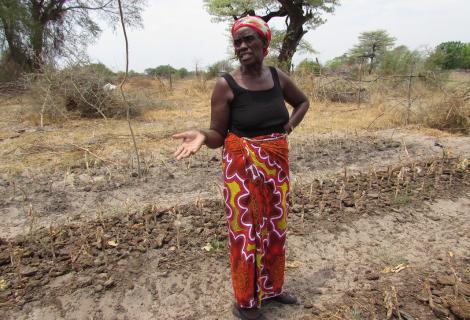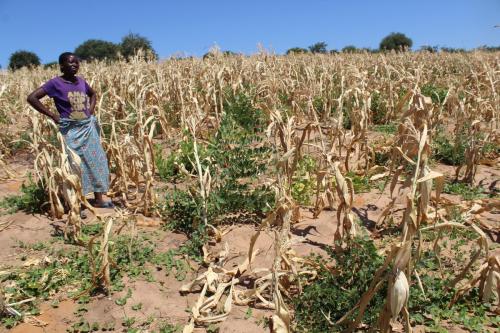Families are surviving on one meal a day in drought-hit Zambia

Communities in the Global South are struggling with the reality of the climate emergency every day.
Families in Sesheke, in Zambia’s western province, are facing severe food shortages due to drought. The area has experienced erratic rain, heat waves and drought affecting about 700 households. High temperatures in the area have damaged crops, leaving communities without enough food.
Our vegetables in the gardens are dying. Drought has caused a reduction of food in our homes. Most times we eat one meal a day.” says 58-year-old, Patricia Musweu a small-farmer and Katongo Farmers’ Cooperative secretary. She continues:
"At midday, my children start crying because of hunger and it is not easy to search for food. We are not able to turn to our neighbours because they are experiencing the same thing as we are."
According to Patricia, some women in her community are opting to cross to Namibia in search for casual jobs. Some young people, especially women, have found themselves being trafficked for prostitution.
“Climate change is real, I feel it with my family and community every day,” she adds. “We are no longer able to survive on farming alone.”
Given Muwana is a small-scale farmer hailing from Mangamu community, Sesheke in Western Province of Zambia. She is now planting indigenous plants and hybrid maize following agroecology training. Given says: "When it does rain, it pours to the point that crops are damaged. And when it is dry, the heat is damaging to our crops.
“Climate change is negatively affecting our community. We are not able to know if it is going to rain or not. Heat is damaging our vegetables and our crops.”

As a way of building resilience, ActionAid Zambia has trained communities on agroecology, climate resilient farming practices that work with nature and empower women farmers, in the drought prone area.
Thirty farmers have been trained and supported with drought resilient cash crops like sorghum, millet, monkey nuts and local maize. Each of these farmers is then asked to support five other farmers with training and mentorship.
Given is now practicing agroecology and she is planting indigenous beans, groundnuts and millet to help her survive the heatwave and drought. She is urging others to do the same and make use of the knowledge that ActionAid Zambia is sharing.
Workshops on the impacts of climate change have also been provided with training on emergency preparedness and leadership. The training is aimed at women and designed to help them build resilience and reduce the negative impact of climate change on their communities.